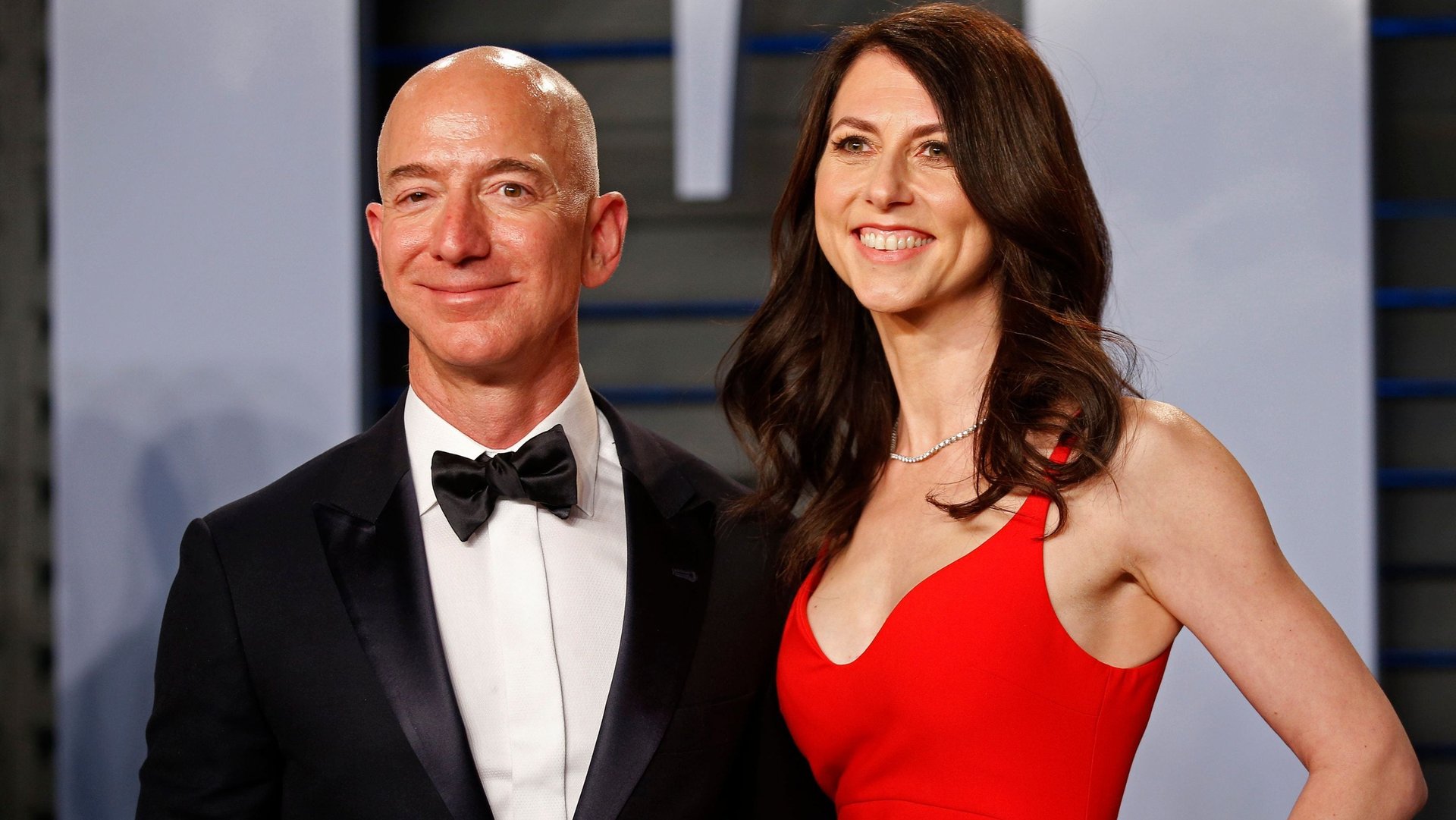Jeff Bezos’s divorce announcement is a perfect example of controlling the story
Jeff Bezos published a surprise announcement on Twitter today (Jan. 9), alerting the world to the fact that he and MacKenzie Bezos, his wife of 25 years, are divorcing. “As our family and close friends know, after a long period of loving exploration and trial separation, we’ve decided to divorce and continue our shared lives as friends,” the couple wrote in a note.


Jeff Bezos published a surprise announcement on Twitter today (Jan. 9), alerting the world to the fact that he and MacKenzie Bezos, his wife of 25 years, are divorcing. “As our family and close friends know, after a long period of loving exploration and trial separation, we’ve decided to divorce and continue our shared lives as friends,” the couple wrote in a note.
Although the tweet instantly went viral, and triggered news headlines, it’s unlikely that we’ll continue to discuss this breakup news much beyond today, which is exactly the point.
As CEO of a company currently valued at $810 billion, higher than any other on the planet, Bezos couldn’t afford not to own this narrative. He couldn’t allow it to become fodder for speculation about his personal life, or state of mind, at a time when investors are particularly worried about unstable genius leaders. So Bezos tweeted out a statement that was everything a bizarre Elon Musk tweet is not: level-headed, carefully worded, and reassuring in its repetitiveness.
Bezos, the wealthiest man in the world, kept the message absolutely uninteresting, if nicely written, and delivered it straight to the public, without the help of a press release or a newspaper, including the one he owns. This is a perfect example of controlling the story in 2019, and it’s appropriately sombre—literally colorless and free of images or videos—given the topic.
New models of narrative control
In 2013, when Chiara de Blasio, daughter of New York City mayor Bill de Blasio, published a video describing her history with drug abuse and addiction, media columnist Michael Wolff called it a new model of narrative control, one with a millennial spin. The mayor’s daughter spoke to the camera reality tv-style and published her testimony on Instagram.
That would have been a step too far for the generally media-shy Bezos. Nevertheless, he had to do something. As Wolff noted backed in 2013, companies are now under the same pressure as politicians to sell the right story. “The up-to-date marketing view is that brands must become publishers, or storytellers, themselves—the most important thing they’re selling is, in fact, narrative,” he wrote. “It’s another step on a road that we’ve been on for a long time. Functionality, actual products and division of labor give way to a much more disembodied sense of reality, wherein we create and sell an effective fiction.”
For most brands, this rule wouldn’t apply to a leader’s private life, of course; even as we expect vulnerability from leaders, some boundaries remain. But Amazon’s heft makes Bezos a celebrity CEO inseparable from his brand—and his company’s influence makes him a public figure whose decisions, like where to build a new headquarters or how much to pay his warehouse or grocery store employees, are inevitably political.
Bezos hit just the right tone
The majority of responses to his tweet suggest that Bezos hit just the right tone, by any public relations standard. “Your divorce sounds better than most people’s marriages,” was one comment expressed a few different ways. Some people mused about how the money will be divided, of course, and others made predictable jokes about proceeding with the legal work through Amazon’s AI assistant Alexa, and asking Alexa to play “Thank U, Next.”
Many others praised the Amazon founder and his wife—an American Book Award-winning novelist who met Bezos when she worked for him at a hedge fund in New York—for acting with courage, as if they were speaking to friends.
Of course, there also were attempts to bust any illusion that this highly personal announcement somehow makes millions of people a part of Bezos’ inner circle, or that it changes anything about the degree of empathy we should hold for this CEO. Twitter user Jim Earl, for instance, wasn’t down for the Hallmark moment.
But perhaps the best gauge of Bezos’s control of the narrative came from the markets, where Amazon shares were trading at $1,657.81 in midday US trading—up $1.23 for the session.